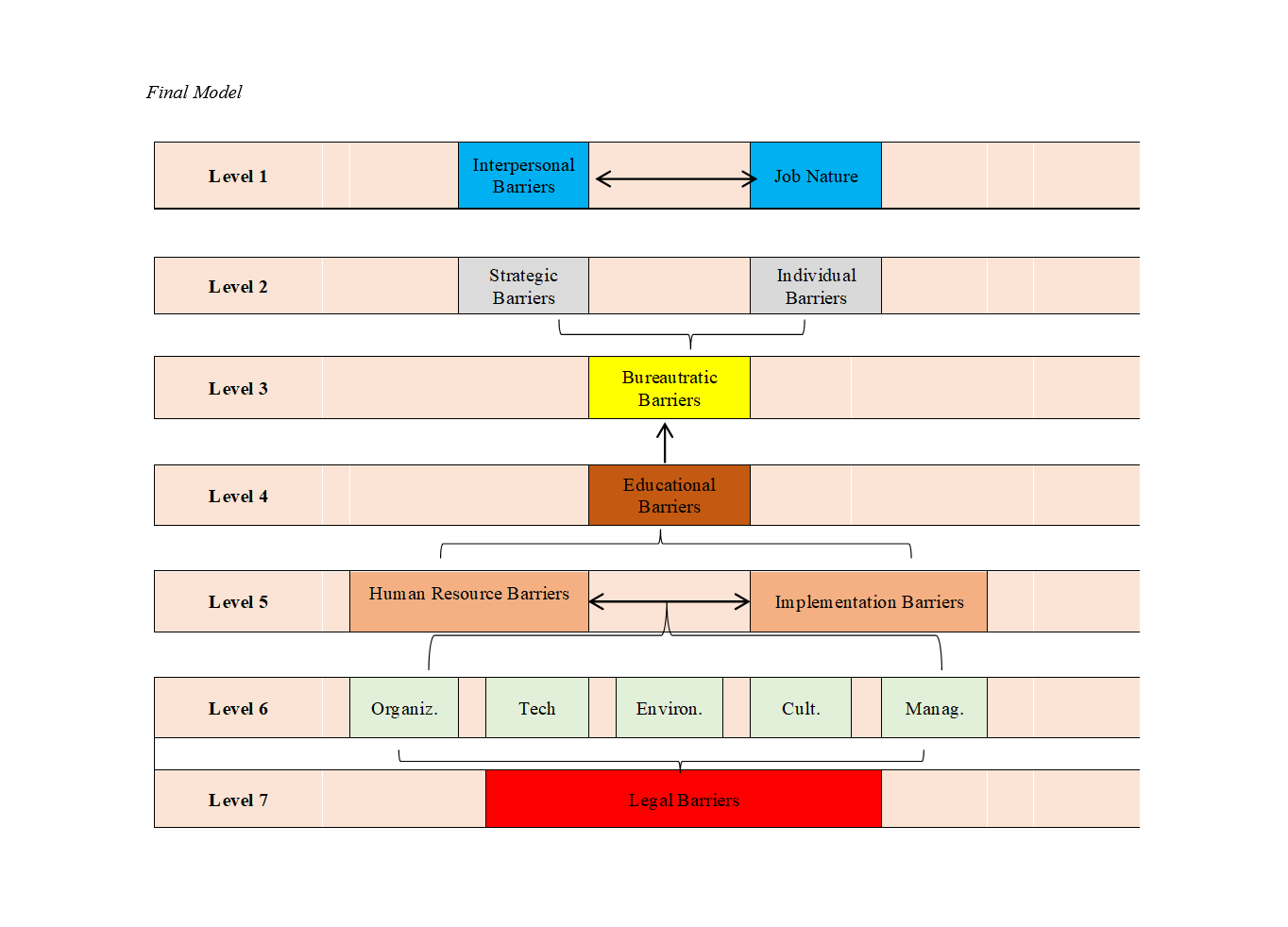Barriers to Implementing Succession Planning in Government Organizations with a Structural Interpretive Approach
Keywords:
Succession planning, talent management, barriers to succession planningAbstract
Objective: Nowadays, an effective management system in government organizations leads to vibrant life and the growth and development of the country. To benefit from such a system, competent and suitable managers must exist within the organization's lifecycle, and in their absence, the organization should have access to alternative human resources. The purpose of this study is to investigate the barriers to implementing succession planning in government organizations using a structural interpretive approach.
Methodology: This research is practical and falls within the category of descriptive surveys. Data analysis is performed using a structural interpretive approach, specifically the cross-impact matrix multiplication method, with the help of MICMAC software.
Findings: The findings include 84 indicators or variables that have been identified and categorized into 14 categories across seven levels as barriers to implementing succession planning. The research also shows that legal barriers are the most significant, while individual barriers are the most impacted by other influential factors in implementing succession planning.
Conclusion: Based on the research findings regarding human resources barriers, it is recommended that managers focus on identifying and nurturing internal talents, paying sufficient attention to talent management, and understanding the importance of planning for optimal talent management.
Downloads

Downloads
Additional Files
Published
Issue
Section
License
Copyright (c) 2024 Marzieh Abdul Rezaei, Hamid Rezaei Far, Mohammad Mohammadi, Hossein Hakimpur (Author)

This work is licensed under a Creative Commons Attribution-NonCommercial 4.0 International License.















